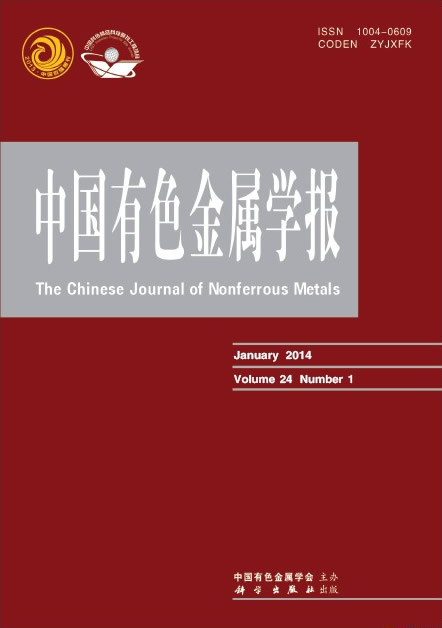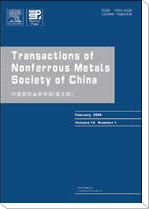中国有色金属学报(英文版)
Transactions of Nonferrous Metals Society of China
| Vol. 35 No. 10 October 2025 |
(1. Key Laboratory of Solidification Control and Digital Preparation Technology (Liaoning Province), School of Materials Science and Engineering, Dalian University of Technology, Dalian 116024, China;
2. Guangxi Key Laboratory of Manufacturing Systems and Advanced Manufacturing Technology, School of Mechanical and Electrical Engineering, Guilin University of Electronic Technology, Guilin 541004, China;
3. National Engineering Research Center for Special Mineral Material, China Nonferrous Metals (Guilin) Geology and Mining Co., Ltd., Guilin 541004, China)
Abstract:Laser specific energy significantly impacts the quality of composite coatings. Ti-Al/WC coatings were prepared on the TC21 alloy through laser cladding with specific energy ranging from 66.7 to 133.3 J/mm2. The results indicate that the composite coatings primarily comprised Ti2AlC, α2-Ti3Al, γ-TiAl, TiC, and W phases. A gradual increase in the relative intensity of the diffraction peaks of Ti2AlC, α2-Ti3Al, and TiC appeared with the increase of specific energy. When the specific energy was 116.7 J/mm2, the Ti-Al/WC coated alloy achieved a maximum micro- hardness of HV0.2 766.3, which represented an increase of 1.96 times compared with TC21 alloy, and the minimum wear rate decreased dramatically. Much improvement in tribological properties was attained through the fine-grained strengthening of the (α2+γ) matrix and the dispersion strengthening of self-lubricating Ti2AlC and intertwining TiC. This study provides valuable insights for the development of high-performance Ti-Al composite coatings.
Key words: laser specific energy; Ti-Al/WC coating; TC21 alloy; Ti2AlC; tribological properties


